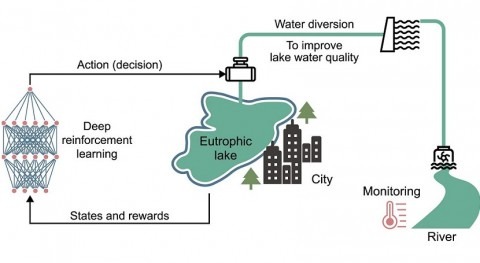Researchers have found that precipitation variability will vary in the short and long terms due to global warming.
The hydrological cycle intensifies under global warming with precipitation increases. On a global scale, precipitation variability is expected to amplify due to global warming with wider swings between wet and dry conditions, according to a recent research article published in the journal Science Advances.
Precipitation variability refers to the range of possible fluctuations of precipitation events. It is a key component of hydrological cycle. Higher precipitation variability indicates higher frequency of abnormal precipitation and extreme weather.
Researchers from the Chinese Academy of Sciences and some British institutes found that approximately two-thirds of land on Earth will face a "wetter and more variable" hydroclimate on daily to multiyear time scales.
The amplification of precipitation variability is particularly prominent over climatologically wet regions, said the article.
Furthermore, the researchers estimated that the average global precipitation variability will increase about five percent when the globe becomes warmer by one degree Celsius.
For the majority of the globe, increased precipitation variability means that global warming is pushing or will make the climate system more variable and uneven, said the researchers.



















